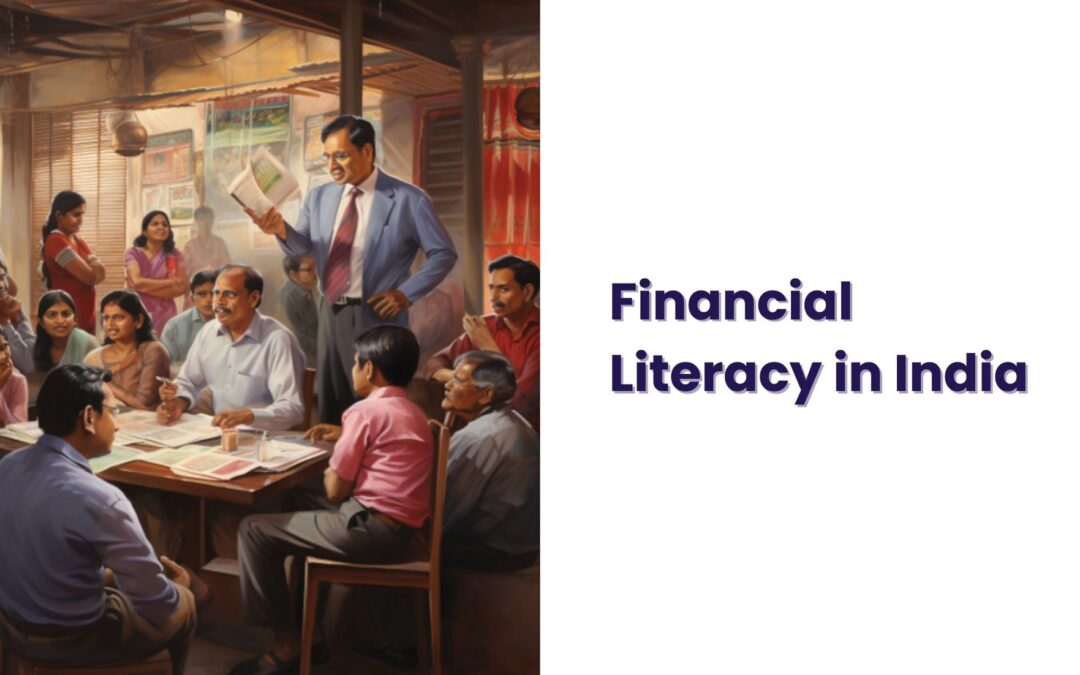Financial literacy is not just a buzzword but a crucial aspect of modern society. Across the globe, understanding financial concepts, managing money, and making informed decisions have become essential. In the context of India, where rapid economic growth meets diverse demographics, financial literacy takes on a unique significance.
If you are looking for an amazing way to save your money, download the Jar App and start saving in 24k digital gold!
Historical Perspective
Delving into India’s past reveals an evolving relationship with financial literacy. From the traditional barter system to the introduction of banking systems, India’s financial journey has seen significant milestones. However, the true emphasis on educating the masses about financial management gained momentum in recent decades.
Current Scenario in India
Despite progress, India faces challenges in promoting widespread financial literacy. Factors such as diverse languages, vast rural populations, and varying levels of awareness contribute to this challenge. Nevertheless, the government and financial institutions have launched numerous initiatives to bridge this gap, emphasizing financial inclusion.
The Impact of Digitalization
In the digital era, fintech platforms are revolutionizing how Indians perceive and manage money. Mobile banking, digital wallets, and online investment platforms have democratized access to financial services. This digital transformation not only enhances convenience but also accelerates financial literacy among the masses.
Importance in Today’s Age
Why is financial literacy crucial in today’s age? Simply put, it fosters economic growth, ensures financial stability, and empowers individuals to make informed choices. As India’s economy becomes more intertwined with global markets, understanding financial nuances becomes paramount for sustainable growth.
Barriers to Financial Literacy
However, several barriers hinder the widespread adoption of financial literacy in India. Cultural beliefs, misconceptions about money, and a lack of accessible resources pose challenges. Overcoming these barriers requires a multi-faceted approach, integrating education, awareness campaigns, and policy interventions.
Initiatives and Programs
Recognizing the importance of financial literacy, both government and corporate sectors have launched initiatives. From financial literacy camps in rural areas to digital platforms offering free courses, efforts are underway to empower Indians with essential financial skills.
Role of Education
Education remains the cornerstone of promoting financial literacy. Integrating financial education into school curricula, vocational training, and community programs can instill lifelong skills. By starting early and emphasizing practical knowledge, India can nurture a financially savvy generation.
Benefits for Different Demographics
Financial literacy transcends age, gender, and geography. For youth, it cultivates responsible financial habits. For women, it promotes economic empowerment. In rural areas, it bridges the urban-rural divide, fostering inclusive growth.
Future Outlook
Looking ahead, the future of financial literacy in India looks promising yet challenging. Embracing innovation, leveraging technology, and prioritizing education can unlock untapped potential, driving India’s growth story.
Conclusion
In conclusion, financial literacy in India is more than just understanding numbers; it’s about empowering individuals, fostering growth, and building a resilient economy. By addressing barriers, promoting education, and leveraging digitalization, India can chart a path towards a financially literate future.
FAQs
Why is financial literacy essential in India?
Financial literacy promotes economic growth, stability, and empowers individuals to make informed decisions.
What challenges does India face in promoting financial literacy?
Challenges include diverse demographics, cultural barriers, and varying levels of awareness.
How is digitalization impacting financial literacy in India?
Digital platforms are democratizing access to financial services, enhancing convenience, and accelerating financial literacy.
What role does education play in promoting financial literacy?
Education is crucial, integrating financial education into curricula, vocational training, and community programs.
What are some successful financial literacy initiatives in India?
Numerous initiatives by the government and corporate sectors, including financial literacy camps, digital platforms, and awareness campaigns, have made a significant impact.

